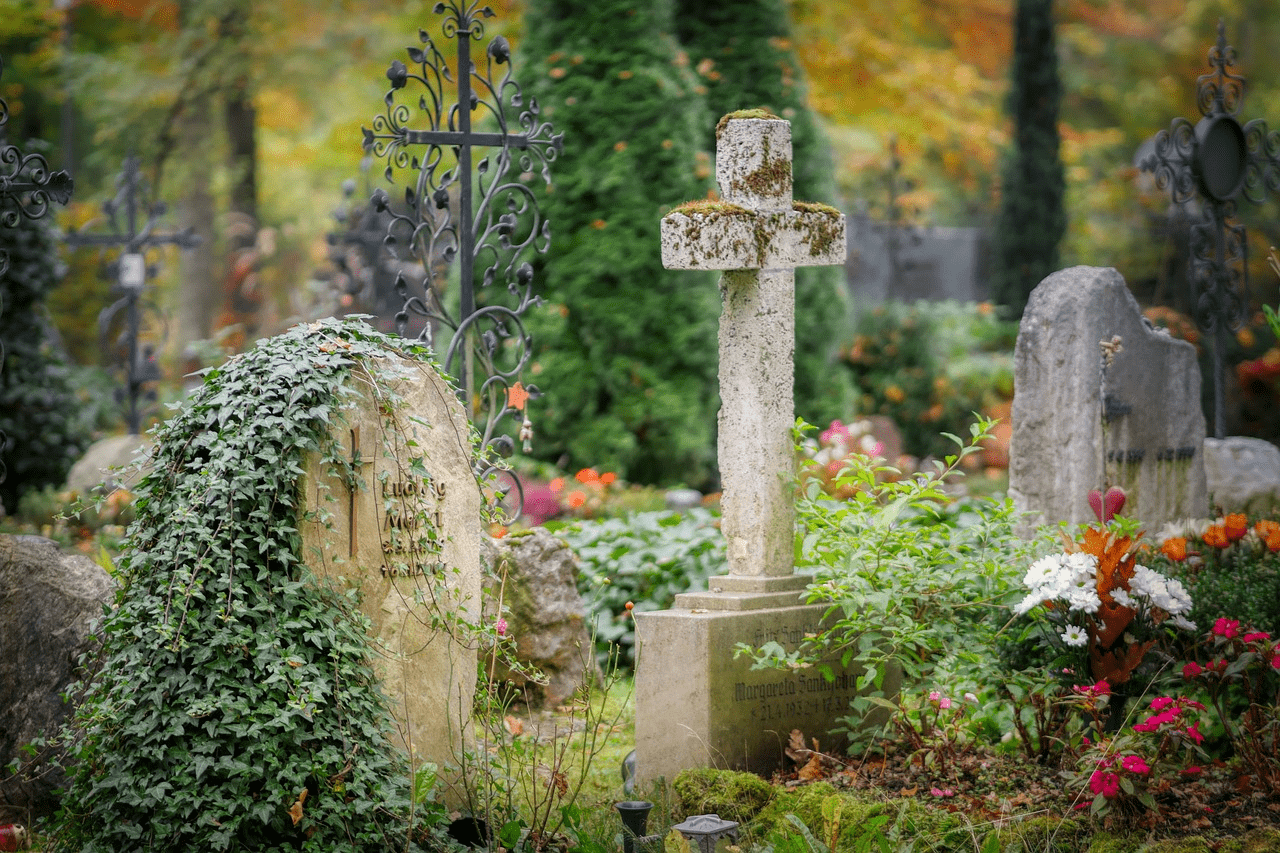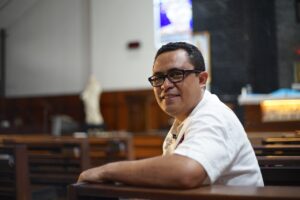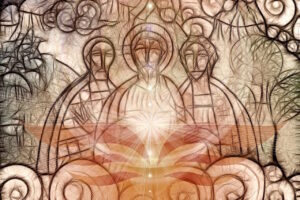Wisdom 2: 12, 17-20 RM / Jeremiah 11: 18-20 RCL; Psalm 54; James 3:16 – 4: 3; Mark 9: 30-37.
Some time ago I visited a small rural cemetery where a few of my relatives are buried. I spent time at the grave of my great-grandparents, heavily overgrown with hostas and weeds. In the back of the cemetery, among a number of small, almost-illegible stones, I located the graves of three of the four little ones they had lost. Hulda was born in 1897 and died two and a half years later. Matilda was born in 1901 and died six months later that same year. And one weatherworn pillar stone was marked only, “Infant of Alb. and Em. Hartwig,” with no visible year of death and no name.
My great-grandmother Emilie had borne eleven children, of whom seven lived to adulthood. She herself died at age 90 in 1952, not long after I was born. I hope that having a known gravesite for these lost babies gave her the peace of knowing they lay in a safe place near the church, and a way for her to mourn. Countless bereaved mothers and fathers have no graves to visit. Whatever the tragic circumstances, their children are simply gone.
A professional liturgist friend of mine once told us that she had suffered several miscarriages before the birth of her son. Out of this experience, she composed a church rite for mourning miscarried and stillborn children. But she had an uphill struggle when the rite was submitted to the church authorities in charge of revising their denomination’s book of worship. “Too personal,” said these gentlemen. (Eventually the rite did appear in a new edition of the service book.)
All this is to state the obvious, that small children are vulnerable little beings. In our world today, as at the turn of the 20th century, children’s lives can be made precarious by poverty, lack of food, no proper medical care, war or migration, to say nothing of unstable families damaged by abuse, addictive disease or abandonment. On our TV screens or news feeds we see emaciated little children, or children horrifically wounded in attacks, in Gaza, the Sudan, Afghanistan and elsewhere.
In the time of Jesus, infant mortality took a heavy toll as did childhood sickness. The poignant, in fact desperate, pleas of Jairus the official, and the Syrophoenician woman, for their beloved daughters, shows the depth of pain that drove parents to beg Jesus, this strange prophet from a different people, to cure their daughters. At the same time, these Roman/Mediterranean cultures could be ruthless regarding the human value of an unwanted child. In the Roman Empire one aspect of the power of the paterfamilias, the patriarch of an extended family, was the right to let an unwanted child die of exposure and starvation. After all, a child drains family resources when these are in short supply and, apart from the family’s heir, does not contribute anything. Ancient Greeks and Romans would not consider this practice murder but early Christians did. Christians were known to have taken in abandoned children.
This is the larger context behind the superficially sweet image of Jesus taking a little child on his lap as an object lesson to his competitive, combative disciples. Jesus’ physical act of taking a young child in his arms displays warmth and welcome, but also affirmation of the intrinsic value of this small, vulnerable person over against utilitarian cruelty on the one hand and self-seeking social climbing on the other. Up to now, in the Gospel of Mark, Jesus has shown miraculous signs demonstrating that he is sent by God. Now, in a stunning shift, Jesus delegates this dignity to one of the lowest ranking of human beings, and declares to his disciples that anyone who receives such a child, receives him: Jesus, whom Peter called the hoped-for Messiah, the Anointed One of God. Whoever receives such a child, receives … God.
When you think about it honestly, we’re all vulnerable, all the time. Climate change, natural disasters, new waves of Covid, make this far too clear. No one gets out of this world alive, as the saying goes. What a challenge to faith. More immediately, what a challenge to us to treat each other, irrespective of social standing or any other superficial characteristic, as fully and irrevocably worthy in the eyes of God.
© Susan K. Roll
This Reflection has been edited from that of September 19, 2021.
Susan Roll retired from the Faculty of Theology at Saint Paul University, Ottawa, in 2018, where she served as Director of the Sophia Research Centre. Her research and publications are centred in the fields of liturgy, sacraments, and feminist theology. She holds a Ph.D. from the Catholic University of Leuven (Louvain), Belgium, and has been involved with international academic societies in liturgy and theology, as well as university chaplaincy, Indigenous ministry and church reform projects.




